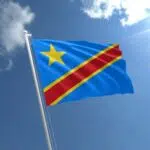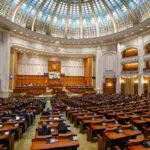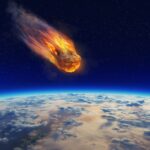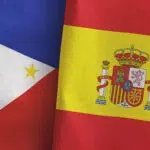Congo Independence Day is celebrated on June 30 every year. The day marks the country’s historic independence from the Belgian colonial powers which happened on June 30, 1960. Belgian interference with Congo began in 1885 when King Leopold II established his own ‘Congo Free State’ and started to rule. His reign brought brutal oppression and forced labor to the people of Congo, which thankfully ended after valiant independence struggles. In 1960, Belgium finally released its hold on the nation.
History of Congo Independence Day
Democratic Republic of the Congo (D.R. Congo) is a country in central Africa, bordered by Zambia in the southeast, Angola to the southwest, Central African Republic and South Sudan to the north, Uganda, Rwanda, Burundi, and Tanzania to the east, and finally, the Atlantic Ocean, the Angolan exclave of Cabinda and Congo (Brazzaville) to the west.
The history of D.R. Congo can be traced back to the fourteenth-century ‘Kongo Empire,’ a highly developed and structured state which ruled over the southwestern part of present-day Congo, part of the Republic of Congo, and Angola. The ‘Kuba Federation,’ with similar levels of development, also emerges in what is now known as southern Congo. 500 years after its rise, the Kongo empires fall as a result of internal slavery and rivalry during the 1800s.
Enter the Belgians in the person of Henry Morton Stanley, who began exploring what is now known as D.R. Congo. Some 15 years later, in 1885, King Leopold II of Belgium arrived, founded, and began to rule the ‘Congo Free State.’ However, the ‘free’ state-imposed forced labor and harsh working conditions on the Congolese people, led to the death of 10 million people as a result of Leopold’s harsh regime. In 1941, the first labor strikes occurred but were brutally repressed. Unfortunately, the Belgian government went ahead to impose 120 days of compulsory labor on all workers a year later. Finally, in 1960, after a series of uprisings by the people, Congo gained its independence from Belgium.
Congo Independence Day timeline
Belgian King Leopold II establishes the ‘Congo Free State.’
Congo gains independence from Belgium.
Late President Mobutu Sese Seko renames the country ‘Zaire.’
‘Zaire’ is changed to ‘Democratic Republic of Congo’ by then-Head of State Laurent-Désiré Kabila.
Congo Independence Day FAQs
Is DR Congo the same as the Republic of Congo?
No. The Democratic Republic of Congo and the Republic of Congo are two separate entities, divided by the Congo River.
Who is the president of DR Congo?
Félix Antoine Tshisekedi Tshilombo is the current president of D.R Congo.
What is the currency of Congo?
DR Congo used the ‘Congolese Franc’ as its official currency.
How to Observe Congo Independence Day
Learn more about D.R Congo
Take this day as an opportunity to learn about a different country. Study Congolese culture, food, and traditional attire. It’ll be like taking a virtual tour of another part of the world.
Post a picture of Congo’s flag
Find a picture of the Congolese flag online and post it for everyone to see. Can you find the flag’s emoji?
Wish Congolese people a happy independence day
Even if you don’t have any Congolese friends, the world is a global village. Make a post wishing all Congolese people a happy independence day.
5 Interesting Facts About D.R. Congo
It is a large country
D.R. Congo is the second-largest country in Africa.
It has one of the largest cities
D.R. Congo’s capital, Kinshasa, is the largest city in central Africa.
It has Africa’s oldest park
D.R. Congo is home to the oldest national park in Africa, the ‘Virunga National Park.’
The U.N’s largest peacekeeping mission
The United Nations’ largest peacekeeping mission is in D.R. Congo, with over 21,000 soldiers.
It has the deepest river
The Congo River is about 721.7ft deep making it the deepest river in the world and it is also the second largest river globally.
Why Congo Independence Day is Important
It celebrates a country’s independence
All countries have a right to self-govern and determine their own affairs, without fear of interference. Congo Independence Day is a celebration of that power and freedom.
It brought freedom from tyranny and oppression
Congo suffered under a brutal regime of forced labor and harsh working conditions. 1960 brought an end to that oppression and tyranny.
It opened the way for democracy
Following Congo’s independence, political upheavals and civil unrest took place, with one military coup after another. Thankfully, the country now has a democratically-elected president.
Congo Independence Day dates
| Year | Date | Day |
|---|---|---|
| 2026 | June 30 | Tuesday |
| 2027 | June 30 | Wednesday |
| 2028 | June 30 | Friday |
| 2029 | June 30 | Saturday |
| 2030 | June 30 | Sunday |










